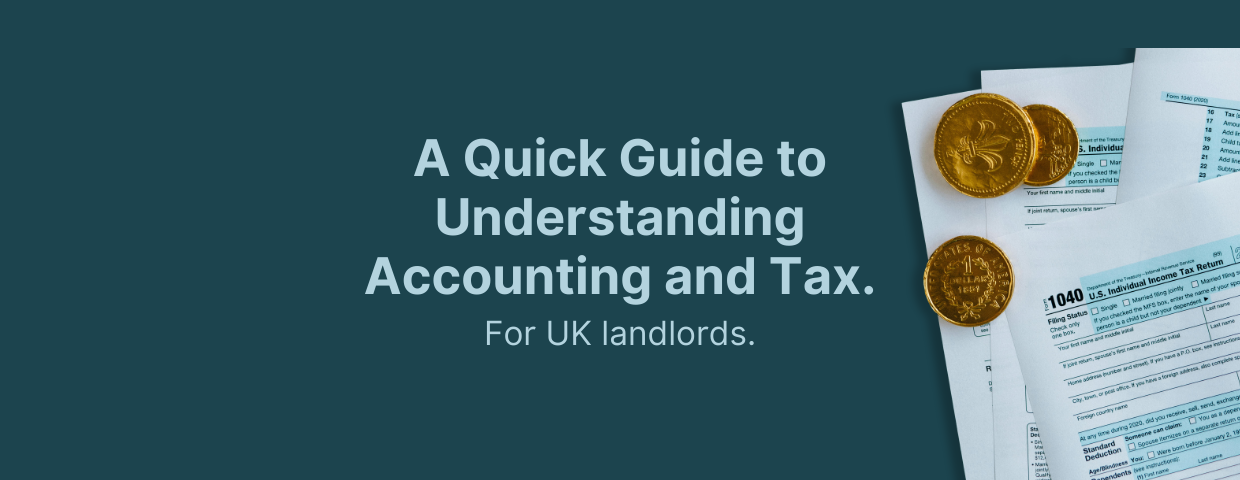
For property investors, mastering accounting and tax is indispensable to maximise investment returns, especially since buy to let tax regulations are constantly changing. Limited companies operate as separate legal entities, requiring landlords to understand that the responsibility for taxes and accounting falls on the company itself, rather than the individual owners. It is crucial to consider the taxes that come with activities such as buying, selling, owning and letting properties as they are specific to limited companies incorporated for property investing.
Let’s take a look at the intricacies of accounting and tax for buy-to-let limited companies in the UK, and how property investors can alleviate any complexities that they might face…
Factors Affecting Taxation
Understanding the factors affecting taxation is fundamental for landlords. The UK government considers three main elements when taxing property investments: your income, the property value, and the chosen investment structure — whether that’s investing in your personal name or through a limited company. Investing in your own name can potentially lead to paying more tax, especially if you fall into the higher income tax bracket, while a limited company structure can offer a certain amount of relief and increased tax efficiencies for investors.
Stages of Taxation for Property Investors
So, when do taxes come into play in property investment? They are typically incurred at three main stages:
- During the property purchase
- When making profits
- When selling the property
Although there are other points at which you may be taxed these are the primary three to be aware of. Each stage has its unique tax implications, from Stamp Duty Land Tax (SDLT) during the purchase, to Income Tax or Corporation Tax – depending on how you invest – when you make profits, to Capital Gains Tax when you come to sell your property or the shares in your limited company.
The Tax Efficiencies Provided by Limited Companies
Investing through a limited company can make you more tax-efficient. For instance, deducting mortgage interest payments from rental profits before paying Corporation Tax can result in substantial savings compared to the tax rates that may apply if investing in your own name, especially if you’re a higher-rate taxpayer. Additionally, extracting profits through dividends, owner or director loan repayments, and pension contributions becomes more flexible and tax-efficient with a limited company structure.
Further Benefit from the Tax Efficiencies of a Limited Company
Although limited companies for property investing can help you access increased tax efficiencies, it also means you have to consider the accounting and tax management of the limited company separately from your personal accounting and tax efforts. In this instance, where accounting and tax management can be time-consuming and difficult, GetGround’s Accounting and Tax services streamline this process for you. With over 20,000 landlords already benefiting from the GetGround platform, we have expanded our accounting and tax service to include all limited companies, not just those incorporated by GetGround.
GetGround’s Accounting and tax service doesn’t just keep your books in order but instead helps you scale your property investment by understanding the intricacies of taxation, acknowledging the differences based on the structure you use, and finding a way to do it all efficiently. To save time and for property investment peace of mind, switch to GetGround Accounting and Tax for as little as £29 a month.
Disclaimer: this is for your information only – you shouldn't view this as legal advice, tax advice, investment advice, or any advice at all. While we've tried to make sure this information is accurate and up to date, things can change, so it shouldn't be viewed as totally comprehensive. GetGround always recommends you seek out independent advice before making any investment decisions.
Structuring your property investment
GetGround can make achieving tax-efficient investing much simpler by setting up your property limited company. GG Company means you can design a limited company in under half an hour and we handle all the admin that comes with it — giving you a hassle-free way to increase the returns on your investment, reduce your personal risk, and co-invest easily with family and friends.
The GetGround Team
The GetGround Team
Discover our recent property investing articles:
The Impact of Interest Rate Drops on UK Property Investors
On February 6th, 2025, the Bank of England announced a reduction in its base interest rate from 4.75% to 4.50%. Although an expected announcement, ...
Best Investment Property Locations in 2025: UK Regional Hotspots
The UK property market is becoming increasingly regionalised, with significant differences in growth potential, rental yields, and demand across the ...
How Economic Factors Can Impact UK Landlords
Even with the recent volatility of the UK economic market, the UK property market has remained resilient with homeowners and property investors still ...


